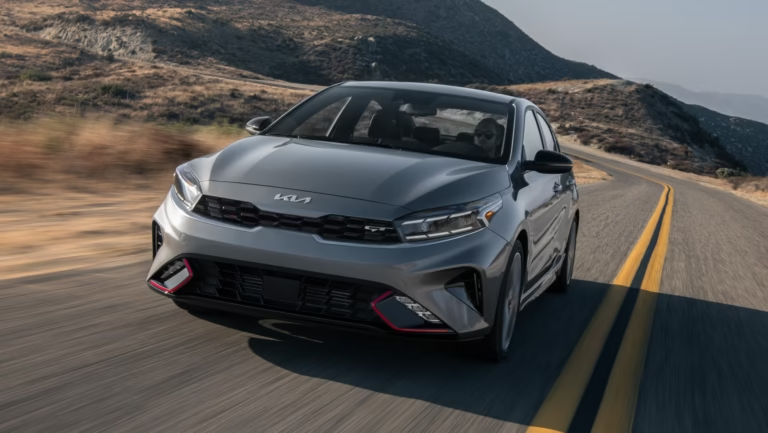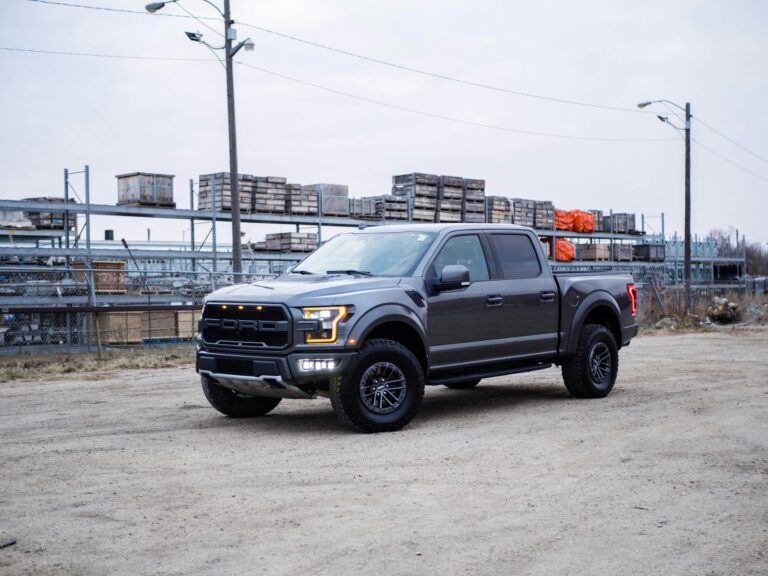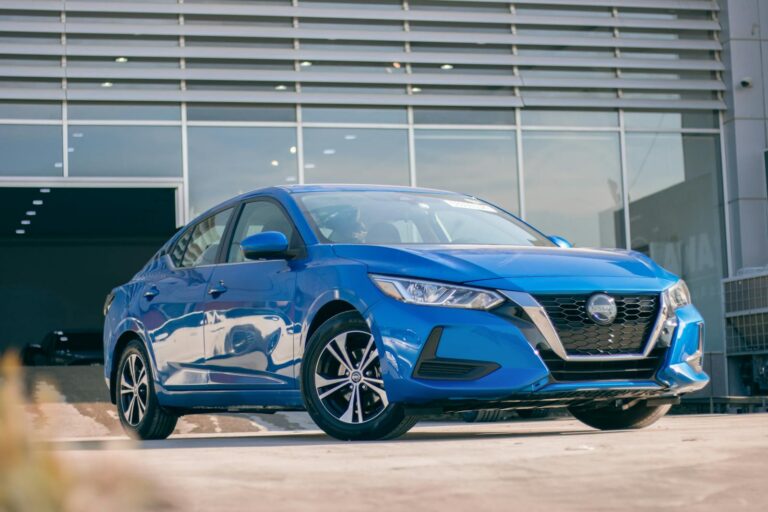Buying a compact car isn’t just about specs or style—it’s about how a vehicle handles your everyday life: commuting, traffic, winter roads, resale value, and ongoing cost. The 2025 Honda Civic aims to balance modern tech, comfort, safety, and driving enjoyment. But is it the right car for you?
In this guide, we’ll cover:
- What the 2025 Civic actually offers: trims, features, engines
- How it performs in real life—city, highway, weather, etc.
- Reliability, maintenance, and cost of ownership
- Direct comparisons to its main rivals: the Toyota Corolla, Mazda3, and Hyundai Elantra
- Practical tips for buying new or used
By the end, you’ll have a clear picture whether the Civic is worth your time and money.
Overview: What’s New & Key Spec Highlights
Here’s a snapshot of what the 2025 Honda Civic delivers.
| Specification | Details |
|---|---|
| Trim Range / Models | The Civic comes in multiple trims: LX, Sport, Sport Hybrid, Si, Sport Touring Hybrid, Hatchback & Sedan versions, and the performance-oriented Type R. Edmunds+2Car and Driver+2 |
| Engines & Power | Base sedans use a 2.0L 4-cylinder (≈150 hp, 133 lb-ft), while hybrids (Sport Hybrid, Sport Touring Hybrid) combine gas + electric for ≈200 hp & 232 lb-ft of torque. The Si and Type R versions, for those who want more performance, take it further. Honda InfoCenter+2Honda de Laval+2 |
| Fuel Economy | Sedans with gas engines deliver decent combined mpg (varies by trim). The hybrid versions give a substantial gain—especially for city driving. Edmunds+1 |
| Cargo & Passenger Space | Trunk space is ~14.8 cu ft for sedans; hatchbacks boost that significantly to ~24.5 cu ft. Passenger volume is roomy, especially in the rear seats. U.S. News Cars+2J.D. Power+2 |
| Safety & Driver-Assistance Features | Standard Honda Sensing® includes adaptive cruise control, lane-keeping assist, collision mitigation braking. The Civic sedan received top marks (5-stars from NHTSA), and the hatchback earned IIHS Top Safety Pick+ for 2025. J.D. Power+2Ike Honda+2 |
| Warranty & Coverage | Basic warranty is standard (often 3 years / 36,000 miles), powertrain coverage typically 5 years / 60,000 miles. Hybrid component warranty is longer. Car and Driver |
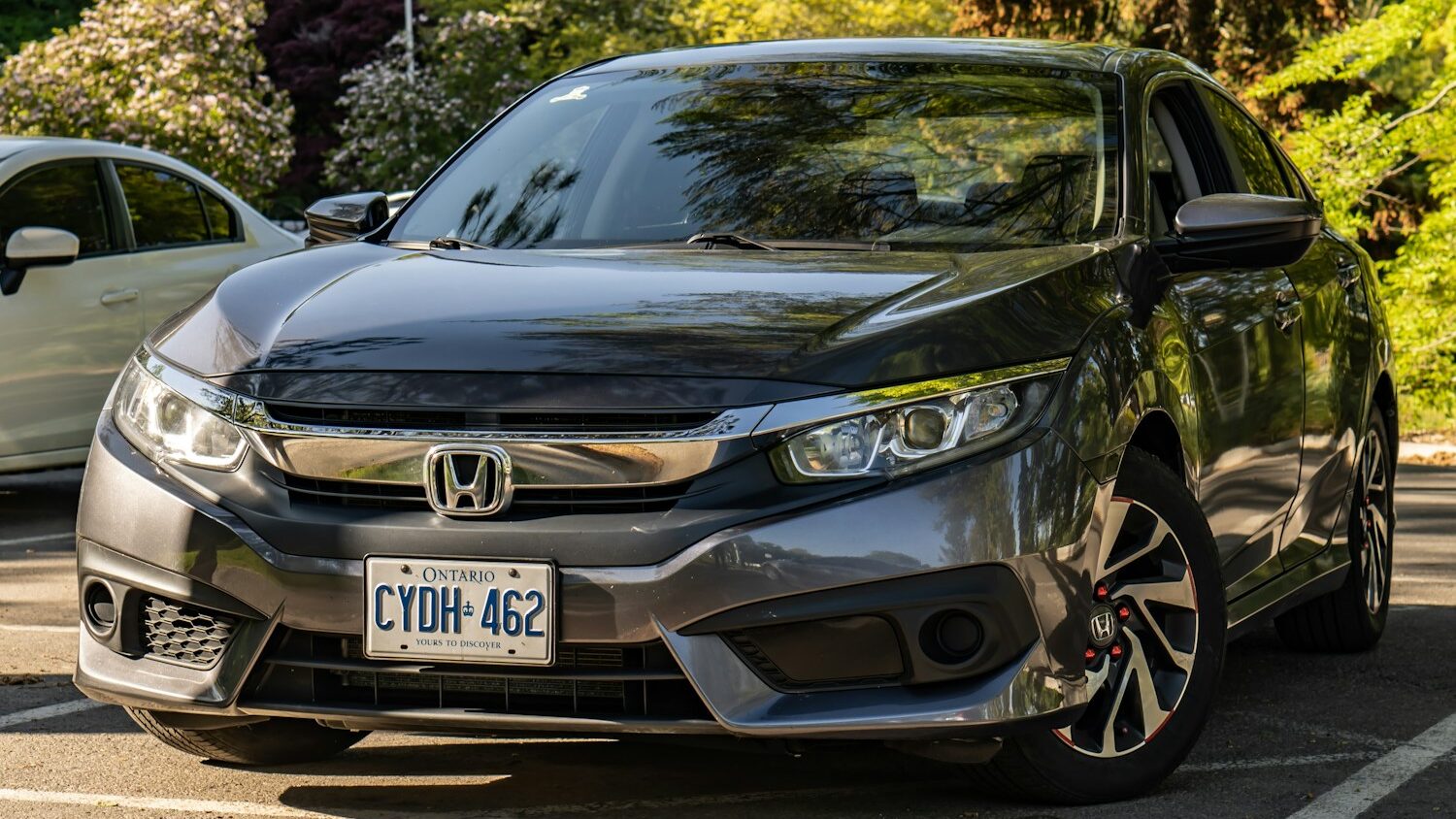
Real-World Performance: How It Feels in Everyday Life
Knowing spec numbers is useful. What matters is how the Civic handles your real conditions.
City & Traffic
- Smoothness & Driveability: The standard 2.0L engine in traffic is adequate; city stop-and-go doesn’t overwhelm it. The hybrid trims shine here, reducing fuel usage and smoothing low speed acceleration.
- Visibility & Maneuvering: Civic’s design offers good outward visibility. Compact enough for tight parking and urban streets. Rear seats are usable for adults in short rides, though tall passengers may feel a bit constrained.
- Ride Comfort: Suspension tuning in non-sport trims is set for comfort—so bumps and uneven pavement are absorbed fairly well. Sport and Type R trims are stiffer (as expected), so rough roads feel firmer.
Highway & Long Drives
- Passing Power & Acceleration: Turbo, hybrid, and Si/Type R trims give strong passing ability on highway on-ramps. Plenty of torque with hybrids for merging and overtaking.
- Noise, Vibration & Harshness (NVH): Recent models reduced engine & wind noise significantly. The cabin is quieter in hybrid trims, though at high highway speeds (> 100 km/h), some road/wind noise is still present, especially on sportier tires.
- Fuel Savings: Over highway miles, the gas engines deliver good mpg, but hybrids or higher efficiency trims give the biggest benefit—especially for long commutes.
Weather, Winter & Climate
- Cold-Start & Heating: Heater systems are effective; warm-up time is acceptable for cold mornings. The hybrid powertrain adds complexity but overall works well.
- Traction: Civic is front-wheel drive in most trims—so behavior in snow depends heavily on tires. Winter tires make a big difference. If you need AWD, some Corolla trims may offer that advantage. Downtown Toyota+1
- Durability in Harsh Conditions: Road salt, cold, and snow are hard on every car. Honda’s build quality is generally solid; frequent underbody washes and rust protection help.
Reliability & Ownership: What to Expect Over Time
Reliability is what often changes a good car into a great one.
- Consumer Reports Prediction: The 2025 Civic has about average reliability compared to other new cars. That means it should hold up well—but there may be minor issues. Consumer Reports
- iSeeCars Data: Average lifespan for a Civic is ~161,800 miles (~13.4 years). There is a roughly 26.5% chance a Civic reaches 200,000 miles. iSeeCars
- Known Issues / Recalls: There have been a few recalls for 2023-2025 Civics: issues with high-pressure fuel pump cracks, steering gear issues (excess internal friction). These have been addressed via free service. Consumer Reports
- Maintenance Costs: Routine services (oil, filters, brakes) are in line with other compact cars. Hybrid trims tend to cost a bit more for battery-related items, though warranties often help. Parts are widely available.
- Depreciation & Resale: Civics tend to hold value well, especially if well maintained. Hybrid and performance trims may fluctuate more, but in general Civic’s resale value is a strength.
Ownership Costs: What You’ll Actually Pay Over 5 Years
Here are approximate costs and considerations over 5 years / 100,000–150,000 km ownership in a place with winters (e.g. Canada).
| Cost Component | Estimated or Key Points |
|---|---|
| Purchase Price | Base LX starts in the low-to-mid-$20,000 USD range; hybrid and performance trims (Si, Type R) can approach or exceed mid-$40,000. In Canada, pricing shifts with duties, taxes, and trim levels. Edmunds+1 |
| Fuel | For mostly city driving, hybrid trims will save you significant money. Gas trims are acceptable, but city fuel costs accumulate. |
| Insurance & Registration | Sporty trims cost more. Base trims are cheaper. Having good safety features helps reduce insurance in many markets. |
| Maintenance | Regular upkeep: oil, brakes, filters. Hybrids cost more for battery servicing potentially; warranty coverage helps. |
| Tires | Larger wheel / performance options = more expensive tires. Winter tires are essential in cold climates. |
| Resale / Depreciation | Civics depreciate less aggressively than many compact cars, particularly non-luxury rivals. Trim, condition, kilometers matter. |
How the Civic Compares: Corolla, Mazda3 & Elantra
To help you decide, here are detailed comparisons with its strongest competitors.
Honda Civic vs Toyota Corolla
Performance & Power
- Corolla’s base gas engine (2.0L) makes ~169 hp; Civic’s base is about 150 hp. Hybrids in both bring fuel savings. Civic Hybrid and Sport Touring Hybrid produce ~200 hp, higher torque. J.D. Power+2Honda InfoCenter+2
- Corolla offers AWD in some hybrid trims; Civic does not offer AWD, which matters for those regularly driving in snow or icy road conditions. J.D. Power+1
Space & Comfort
- Civic trumps Corolla in passenger and cargo space. Civic sedan has ~14.8 cu ft trunk, Corolla sedan about 13.1 cu ft. With hatchback models, Civic offers ~24.5 cu ft vs ~17.8 cu ft for Corolla hatch. Rear seats generally more comfortable in Civic for longer rides. J.D. Power+2Ike Honda+2
Fuel Efficiency
- Corolla Hybrids have excellent numbers and being long-established gives them a track record. Civic’s hybrid trims are newer but offer strong efficiency. If fuel cost & emissions are high priority, Corolla may have a slight edge, depending on trim. Alone Readers+2J.D. Power+2
Safety & Features
- Both have strong safety tech. Civic has standard Honda Sensing; Corolla has Toyota Safety Sense. Civic sedan & hatchback got top ratings (NHTSA / IIHS) in many trims. J.D. Power+1
Cost & Value
- Corolla starts slightly lower in many markets, making it attractive for tight budgets. But Civic’s higher trims and hybrid options give more versatility, performance, and often better resale. If you prioritize cost vs what you get, Civic gives more “features per dollar” in many trims.
Verdict
- Choose Civic if you want sharper styling, better cargo/passenger space, more power in hybrid/performance trims, and a slightly more engaging ride.
- Choose Corolla if you want maximum proven reliability, lower entry cost, AWD (if needed), and excellent fuel savings especially in hybrid models.
Honda Civic vs Mazda3
Driving Feel & Interior Quality
- Mazda3 typically provides a more “premium” feel inside, with more upmarket materials and a more focused driver experience—tighter steering feel, more refined ride in the base trims. Civic has caught up in many ways, but Mazda3 still edges it in “luxury-feel.”
Space & Practicality
- Civic offers more hauling capability (especially hatchback models), more rear seat headroom, and overall more usable volume for everyday use. Mazda3’s hatch is good, but smaller cargo space.
Cost & Ownership
- Mazda3 cost of ownership can be higher for maintenance (depending on options/trim), fewer hybrid options (depending market). Civic’s large scale and parts availability help keep some maintenance costs lower.
Which to Pick
- Go Mazda3 if you value interior ambiance, premium seating, and a refined ride.
- Go Civic if you want more practicality (space, features), stronger resale, and better efficiency in hybrid trims.
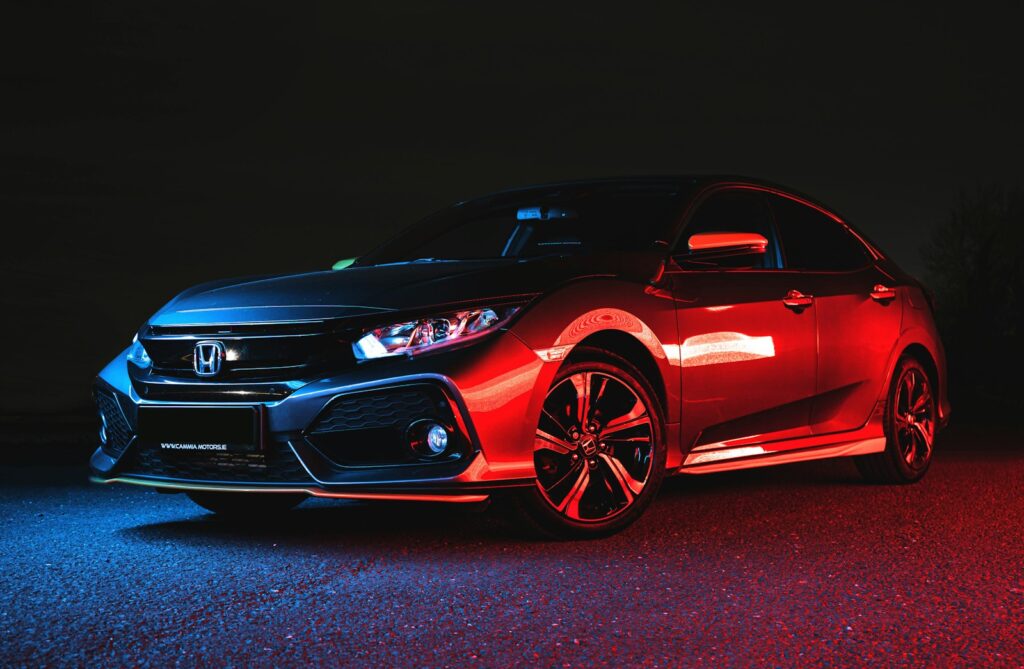
Honda Civic vs Hyundai Elantra
Features & Value
- Elantra often undercuts Civic in starting price and packs in many tech features in base to mid trims (“bang for the buck”).
Warranty
- Hyundai’s warranty (in many markets) may give you longer bumper-to-bumper coverage, which can reduce costs of ownership early on.
Resale & Long-Term Reliability
- Honda has strong brand resale; Civics have long track record. Elantra has improved, but still tends to flatten out more in resale value over time.
Ride & Power
- Civic’s hybrid and performance variants offer better torque or acceleration in certain trims. Elantra’s engine performance is solid, but less sporty in standard trims.
What Type of Buyer Fits Each Trim & Use-Case
Here’s a breakdown to help you decide which Civic trim might be best for your needs.
| Buyer Profile | Best Trim(s) | Why It Fits |
|---|---|---|
| Daily commuter / budget-minded | LX, base Sport (gas) | Lower entry cost, good features, reliable, cheaper to maintain. |
| Fuel economy focus | Sport Hybrid, Sport Touring Hybrid | Great savings in city driving; quieter and smoother transitions. |
| Performance / Fun driving | Si, Type R | More power, sport-tuned suspension, performance brakes, more enjoyable on twisty roads or when you want more zip. |
| Family / passenger comfort | Sedan or Hatchback in Sport Touring / Hybrid trim | More rear seat room, comfort features (climate control, safety features), cargo flexibility. |
| Cold climate / harsh winters | Non-performance trim + winter package (tires, seats) | Rely on traction, safe handling; not many performance trims come standard with AWD, so tires & safety features matter more. |
Buying Tips & What to Check (Especially Used or Hybrid Models)
If you’re buying a 2025 Civic (new) or slightly used Civic (2023-2025), here are things to watch for:
- Recalls: Check if the specific VIN has had recalled parts replaced (e.g. fuel pump, steering gearbox).
- Engine & Turbo Use: For turbo trims, listen for wastegate issues or turbo lag; ensure turbo maintenance (cool-downs etc.) is followed.
- Hybrid System Health: Battery, electric motor, and transition between gas/electric need to be smooth. Ask service history.
- Exterior & Interior Trim Quality: Panels, door alignment, rattles — sometimes quality control on first production runs shows small issues.
- Tire Condition: Winter tires are a must in cold areas; expensive rims/tires on performance trims can drive up upkeep.
- Feature List vs Price: Sometimes higher trims add features you may not need. Evaluate what features you’ll actually use.
Pros & Cons Summary
Pros:
- Strong mix of power, efficiency, and comfort
- Spacious cabin & excellent cargo capacity (especially hatchbacks)
- Good safety & driver assist features as standard
- Hybrid trims offer fuel savings and lower running costs
- Strong resale value
Cons:
- Sport / Type R trims are more expensive to purchase and maintain
- No AWD in the Civic lineup (important in snow)
- First few model years of new hybrid tech may have some teething issues
- Higher trims mean more expensive insurance, tires, and service
Conclusion
The 2025 Honda Civic offers one of the strongest value propositions in the compact car segment today. Whether you’re commuting daily, packing for family trips, or navigating snow and city roads, Civic has trim and option flexibility that lets you tailor what you need.
If your priorities are fuel savings, safety, reliability, and some driving enjoyment, then Civic’s hybrid or Sport trims may be perfect. If you want minimal cost, simplicity, or maximum snow-capability (AWD), you may lean toward Corolla or other rivals—but Civic remains a very strong contender.
🚗✨ Ready to drive home your Honda Civic?
Don’t wait—get pre-approved today and take the first step toward owning your dream car. Our fast, secure application process makes it easy, no matter your credit history.
👉 Apply Now!
FAQs
Q1: Is the 2025 Honda Civic a reliable long-term car?
Yes. Based on Consumer Reports and real-world data (e.g. iSeeCars), Civics have strong lifespans (>150,000 miles common), low major repair frequency, and brand heritage helps resale and parts availability. Consumer Reports+1
Q2: Does the Civic Hybrid save enough to justify its higher cost?
If much of your driving is in city traffic, stop-and-go, or cold weather where gas engines suffer, the hybrid trims save significantly in fuel and drivetrain wear. Over 5-10 years, that can offset the higher upfront price. If you mostly drive highway or cover fewer km, the gains are smaller.
Q3: Which Civic trim offers the best value for everyday driving?
For many buyers, the Sport or Sport Hybrid trims represent the sweet spot—good features, improved efficiency, comfort, without the high cost of performance trims.
Q4: How does the Civic Honda compare to Corollas in Canadian winter conditions?
Civic lacks AWD, so winter tires and conservative driving are essential. In extreme snow or very rural areas, Corolla with available AWD may offer more traction. But Civic’s build, heating, and comfort make it more bearable in cold, especially in higher trims.
Q5: Should I worry about new hybrid tech or recalls?
It’s smart to check service history, ensure recalls are addressed, and follow maintenance schedules, especially for hybrids (battery, sensor systems, etc.). That said, early reports indicate no major systemic failures so far; average reliability predictions are good. Consumer Reports

